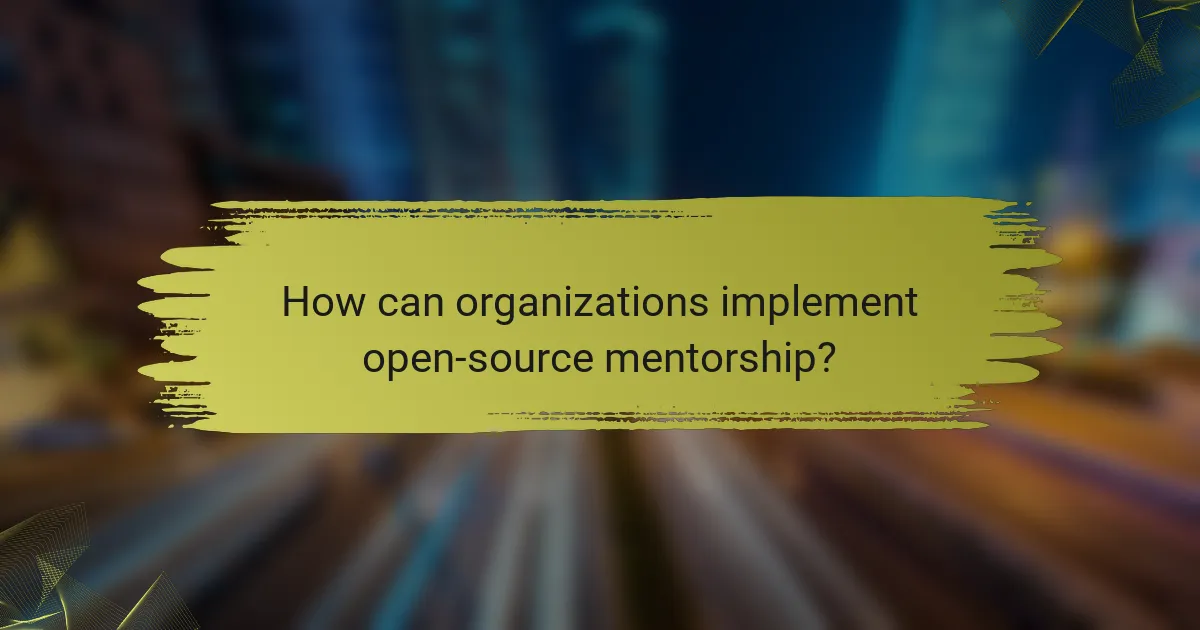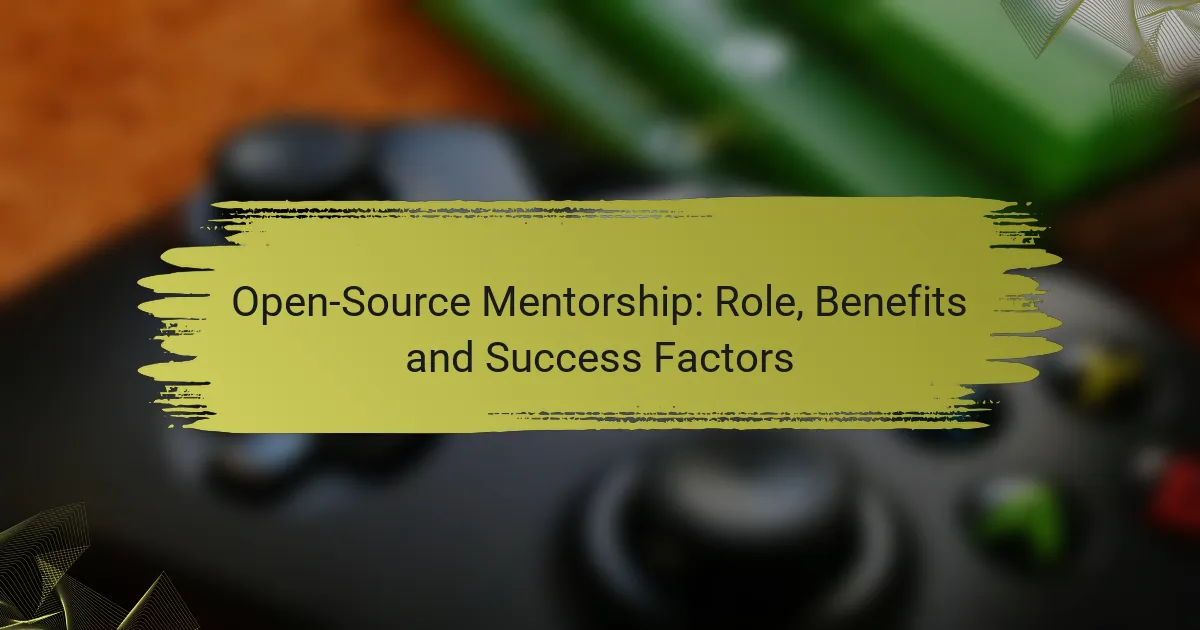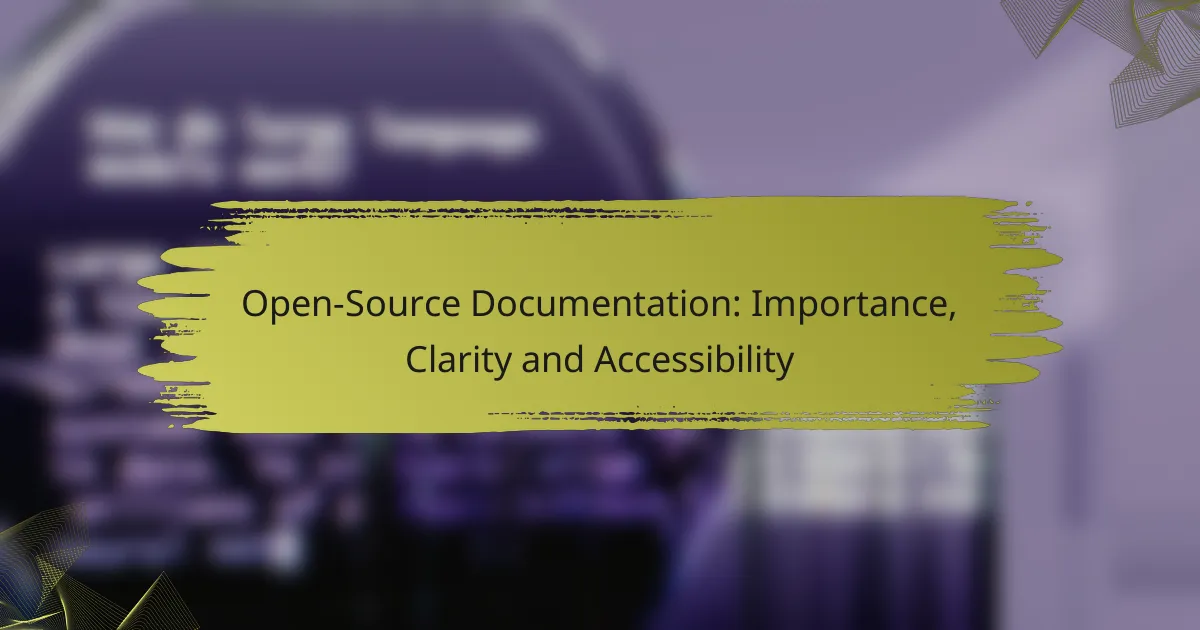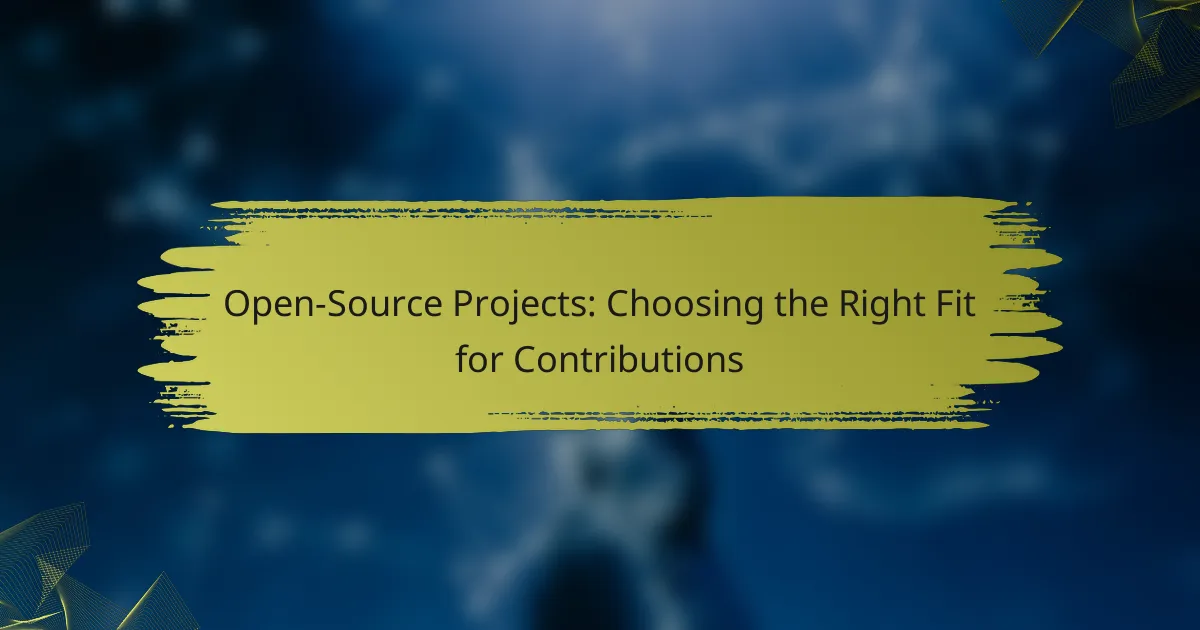Open-source mentorship plays a crucial role in bridging the gap between experienced developers and newcomers, fostering skill development and encouraging meaningful project contributions. This collaborative framework not only enhances learning through shared resources and community support but also offers valuable networking opportunities and diverse perspectives that can propel personal and professional growth. To achieve success, effective mentorship hinges on clear communication, defined goals, and active engagement from both mentors and mentees, creating a productive and enriching environment for all participants.

How does open-source mentorship work?
Open-source mentorship connects experienced developers with newcomers, facilitating skill development and project contributions. This collaborative approach enhances learning through shared resources, guidance, and community support.
Collaborative learning platforms
Collaborative learning platforms serve as the backbone of open-source mentorship, providing spaces where mentors and mentees can interact. These platforms often include forums, chat rooms, and project repositories, allowing participants to share knowledge and resources effectively.
Examples of popular platforms include GitHub, GitLab, and Discord, which host various projects and discussions. Utilizing these tools can streamline communication and foster a sense of community among contributors.
Peer-to-peer guidance
Peer-to-peer guidance is a fundamental aspect of open-source mentorship, where individuals at similar skill levels exchange insights and support. This approach encourages collaboration, as mentees can learn from each other’s experiences while mentors provide direction and feedback.
Establishing regular check-ins or code review sessions can enhance the effectiveness of this guidance. Setting clear goals and expectations can help both mentors and mentees stay aligned and focused on their learning journey.
Community-driven projects
Community-driven projects are essential in open-source mentorship, as they allow participants to contribute to real-world applications. These projects often rely on diverse contributions, making them ideal for mentorship opportunities where newcomers can apply their skills in a supportive environment.
Engaging in community-driven projects can lead to valuable networking opportunities and enhance one’s portfolio. It is crucial to choose projects that align with personal interests and skill levels to maximize the learning experience and contribution impact.

What are the benefits of open-source mentorship?
Open-source mentorship offers numerous advantages, including enhanced skill development, valuable networking opportunities, and access to diverse perspectives. These benefits can significantly boost both personal and professional growth for participants in the open-source community.
Skill development
Engaging in open-source mentorship allows individuals to acquire and refine technical skills through hands-on experience. Mentors often guide mentees through complex projects, helping them learn coding languages, version control systems, and best practices in software development.
Additionally, mentees can receive constructive feedback on their work, which is crucial for improving their abilities. This iterative learning process can lead to increased confidence and competence in their technical skills.
Networking opportunities
Open-source mentorship creates a platform for building professional relationships within the tech community. Mentees can connect with experienced developers, industry leaders, and fellow learners, expanding their professional network significantly.
These connections can lead to job opportunities, collaborations on projects, and invitations to conferences or workshops, enhancing career prospects and community involvement.
Access to diverse perspectives
Participating in open-source mentorship exposes individuals to a variety of viewpoints and approaches to problem-solving. Mentors often come from different backgrounds and cultures, enriching the learning experience for mentees.
This diversity fosters creativity and innovation, as mentees learn to appreciate and integrate different ideas into their work. Embracing diverse perspectives can lead to more robust solutions and a more inclusive tech community.

What factors contribute to successful open-source mentorship?
Successful open-source mentorship relies on several key factors, including clear communication, defined goals, and active participation from both mentors and mentees. These elements foster a productive learning environment and enhance the overall experience for everyone involved.
Clear communication
Clear communication is essential in open-source mentorship as it ensures that both mentors and mentees understand each other’s expectations and progress. Regular check-ins, feedback sessions, and open channels for questions can help maintain transparency and trust.
Utilizing tools like chat platforms, issue trackers, and video calls can facilitate effective communication. Aim for consistent updates and encourage mentees to voice their concerns or ideas to create a collaborative atmosphere.
Defined goals and expectations
Setting defined goals and expectations at the outset of the mentorship helps to align efforts and measure progress. Both parties should agree on specific objectives, such as project milestones or skill acquisition targets, to keep the mentorship focused and productive.
Consider using a shared document to outline these goals, which can be revisited and adjusted as needed. This approach allows for accountability and provides a clear roadmap for the mentorship journey.
Active participation
Active participation from both mentors and mentees is crucial for a successful mentorship experience. Mentors should engage with their mentees through regular interactions, while mentees should take initiative in their learning and project contributions.
Encourage mentees to actively seek out tasks, ask questions, and provide feedback on their learning process. This engagement not only enhances their skills but also fosters a sense of ownership and commitment to the open-source community.

How can organizations implement open-source mentorship?
Organizations can implement open-source mentorship by establishing structured programs that connect experienced contributors with newcomers. This approach fosters skill development and community growth while enhancing project sustainability.
Creating mentorship programs
To create effective mentorship programs, organizations should define clear objectives and match mentors with mentees based on skills and interests. Consider offering a structured curriculum that includes regular check-ins and feedback sessions to track progress.
It’s beneficial to set expectations for both mentors and mentees, outlining responsibilities and desired outcomes. This clarity helps maintain engagement and ensures that both parties gain value from the experience.
Utilizing platforms like GitHub
Platforms like GitHub are essential for facilitating open-source mentorship. They provide tools for collaboration, issue tracking, and code review, making it easier for mentors to guide mentees through real-world projects.
Organizations can leverage GitHub’s features by creating dedicated repositories for mentorship programs, where mentors can assign tasks and provide feedback directly on the code. This hands-on approach accelerates learning and builds confidence in new contributors.
Encouraging community involvement
Encouraging community involvement is crucial for the success of open-source mentorship. Organizations should promote events such as hackathons, workshops, and meetups to foster networking and collaboration among participants.
Additionally, recognizing and celebrating contributions through social media or project showcases can motivate both mentors and mentees. This recognition not only enhances individual engagement but also strengthens the overall community spirit.

What challenges do open-source mentorship programs face?
Open-source mentorship programs encounter several challenges that can hinder their effectiveness. Key issues include resource allocation, maintaining participant engagement, and measuring success effectively.
Resource allocation
Resource allocation is a critical challenge for open-source mentorship programs, as they often rely on volunteers and limited funding. Ensuring that mentors have enough time and support to guide mentees can be difficult, particularly in larger projects where demands can quickly outstrip available resources.
To address this, programs should prioritize clear communication about expectations and time commitments. Setting realistic goals for both mentors and mentees can help manage workloads and improve overall satisfaction.
Maintaining engagement
Maintaining engagement among participants is essential for the success of mentorship programs. Mentors and mentees may lose interest or feel disconnected if not actively involved in the project or if communication falters.
Regular check-ins, structured activities, and community-building events can foster a sense of belonging and motivation. Utilizing platforms that facilitate ongoing interaction, such as forums or chat groups, can also help keep participants engaged over time.
Measuring success
Measuring success in open-source mentorship programs can be challenging due to the diverse goals and outcomes associated with each initiative. Success may be defined differently by mentors and mentees, making it difficult to establish universal metrics.
Programs should consider using a combination of qualitative and quantitative measures, such as participant feedback, project contributions, and retention rates. Establishing clear objectives at the outset can help create a framework for evaluating progress and impact effectively.



